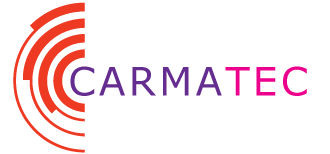Introduction of CodeIgniter
CodIgniter is Model/View/Controller (MVC – Model-View-Controller is a software design pattern that helps you logically separate your code) approach to web development best practices. It makes coding in PHP simple, quick and user-friendly. It’s an excellent framework for beginners to help them learn more about how PHP works, as they code. It is built over a linear, easy-to-use folder structure. Being open source, it is free and simple to configure as well as customize for your own needs. Using CodeIgniter allows you to construct your own cleaner URI lines in the framework.
Advantages
- CodeIgniter is speedy, reliable, light-weight and very expedient.
- An easy debug, PHP framework allows you to easily escape the errors in your development
CodeIgniter Development further helps you extend your PHP coding to achieve specific functions through the framework. - CodeIgniter PHP Development is one of the easiest ways to utilize a modular program.
- CodeIgniter PHP Development is known for its compatibility with a majority of web servers, multiple operating systems and platforms.
- For many relational database management systems, PHP can be used.
- CodeIgniter has an outstanding performance as well as presentation.
- While configuring the PHP framework, CodeIgniter is famous among developers because of effort investment.
Introduction of Cake PHP
An open-source middle level framework, CakePHP is free and serves as a great rapid development framework for PHP. Originally inspired by Ruby on Rails framework, it is a structure of libraries, classes and run-time infrastructure for the developers working on web applications. It primarily adapts you to working in a structured and rapid style without any loss of flexibility.
Advantages
- There is no default language in CakePHP frame and therefore the developers can choose any language according to their comfort level.
- In CakePHP, there’s no need to create model, controller and view manually, since we can bake according to the database. So, baking is an option in the CakePHP framework.
- In CakePHP, Object Relational Mapping Facility is available which implies that in CakePHP, every table is represented in the form of a class. So, it is easy to define the relation between different tables.
- Integrated CRUD for database interaction and simplified queries.
- Compatibility with PHP4 and PHP5.
- Built-in Validation, fast and flexible templating (PHP syntax, with helpers).
- With flexible View Caching, it can work from any web site subdirectory with little to no involvement of Apache Configuration if any.
CodeIgniter v/s CakePHP
- Both use MVC architecture
- Both employ routing which takes a URL and maps it to a particular function within a controller
- They both support Scaffolding which is an automated way of generating a view based on the model
In CodeIgniter, the data is taken from the model, pulled in view and the work is performed in the controller and loaded in the libraries. This means that everything is well in sight so that you can actually monitor how things work. CakePHP makes the process of coding speedy but a bit complex so that it becomes hard for you to figure – what is going, without totally understanding it to the core. So, this can be a bit difficult for the people just starting out.
So, going by this comparison, the beginners can choose to work on CodeIgniter. Once CodeIgniter framework is well understood by the developers, they can move on to middle level frameworks such as CakePHP.
For small featured projects and backend operations and only small mobile application development web services, we can prefer CodeIgniter. If project is complex and more plugins and components required, in that case, CakePHP is usually preferred.
Do the features any of this PHP framework interest you for choosing it to develop your website? We are one of the leading php development company specializing at work based on this framework. Get in touch with us to learn more.










